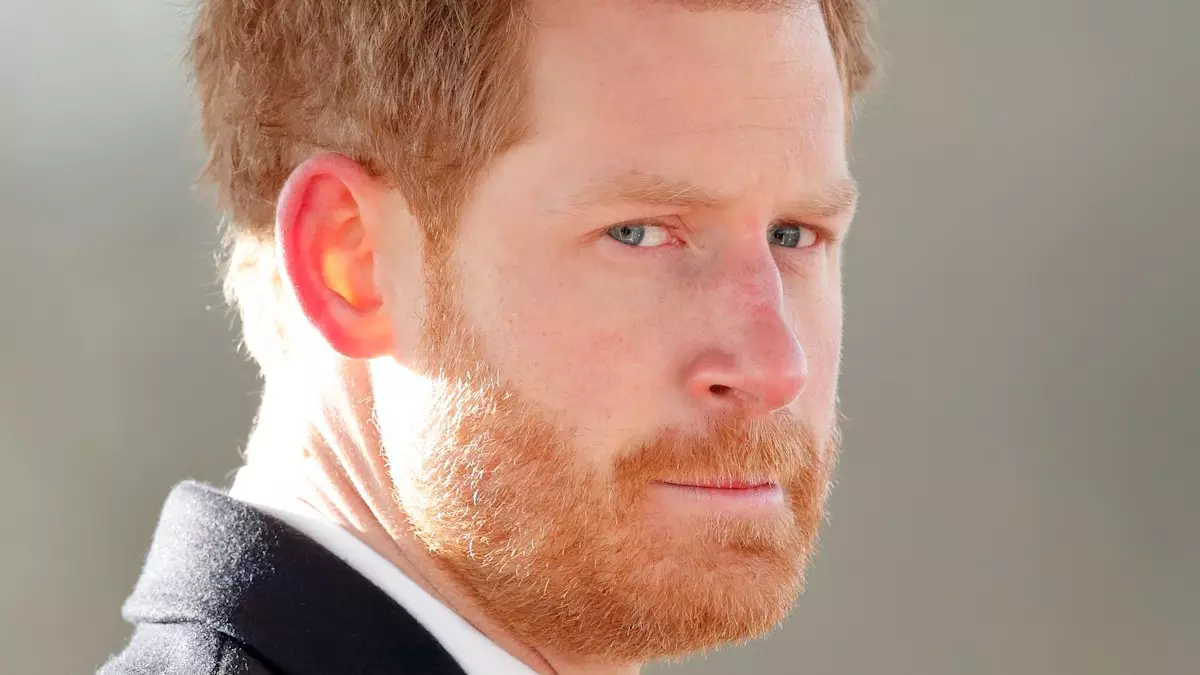Prince Harry, the Duke of Sussex, is poised to return to the United Kingdom next month for a pivotal trial against News Group Newspapers (NGN), the publisher of The Sun. His legal battle, which commands significant media attention, involves grave accusations of unlawful information-gathering and invasions of privacy. Harry, alongside former Labour deputy leader Lord Tom Watson, is alleging that the publication engaged in intrusive tactics including phone hacking and other forms of unauthorized information acquisition. As the trial approaches, there is a palpable tension surrounding what these proceedings could reveal about press practices and royal privacy.
At the heart of Prince Harry’s lawsuit are claims that NGN has employed egregious tactics to gather information unlawfully. This includes accusations that the newspaper group resorted to hacking phones and engaging private investigators to dig into private matters. The trial is expected to last around seven weeks, during which Harry will face cross-examination from NGN’s legal representatives. This confrontation not only serves as a legal challenge for him but also as a personal one, as it reopens old wounds surrounding privacy violations that have long plagued his family.
Harry’s statements highlight a broader issue of accountability within media operations. At a recent summit in New York, he noted that more than 1,300 individuals have settled claims against various publications, citing that many felt compelled to do so. His assertion that he is “the last person” capable of calling out such unethical actions underscores a determination to seek justice—not just for himself, but for those victims of media overreach.
The Impact of Royal Duties on Personal Life
While Prince Harry is embroiled in legal commitments, his wife, Meghan Markle, is expected to remain in Montecito, California, tending to their two children, Prince Archie and Princess Lilibet. This separation during a crucial time highlights the ongoing challenges the couple faces as they navigate their new lives away from royal duties. Reports indicate that Meghan has been hesitant to return to the UK, particularly after recent changes to Harry’s security arrangements during his visits. This circumstance reinforces the couple’s struggle to balance their obligations and safety concerns with their roles as parents and public figures.
Harry’s past legal battles, including a previous case against Mirror Group Newspapers, further illustrate the prolonged nature of their fight against intrusive media practices. Having already provided testimony in a courtroom setting just last year, the Duke is no stranger to the pressures of the legal spotlight.
In addition to the legal battle against NGN, Prince Harry has recently taken a stand against the Home Office. He is contesting the Executive Committee for the Protection of Royalty and Public Figures (Ravec) regarding the quality of security he receives while in the UK. In a February 2024 judgment, Sir Peter Lane, a retired High Court judge, dismissed Harry’s claims, declaring Ravec’s methodology to be reasonable. This legal turn of events adds complexity to Harry’s already difficult circumstances, as it underscores how intertwined issues of privacy and safety have become for him and his family.
In poignant moments within written witness statements, Harry has expressed regret over his family’s departure from royal duties, emphasizing the emotional toll it has taken on both him and Meghan. He articulated the conflict of wanting his children to understand their British heritage while simultaneously grappling with the unease of ensuring their safety in a tumultuous environment.
As legal complexities unfold, questions linger about the future engagement of the Sussexes in the UK. Meghan’s reluctance to return stems from the pervasive narrative surrounding security concerns and their personal reluctance, particularly in light of Prince Harry’s challenging experiences with the media.
There is a palpable sense of anticipation regarding the trial’s outcome and what it may mean for public figures navigating the relentless scrutiny of the press. As Prince Harry maintains his commitment to holding media outlets accountable, he embodies a broader call for renewed discourse on ethical journalism and the imperative to respect individual privacy. The upcoming trial serves not only as a substantial legal endeavor but also as a critical touchstone in a larger conversation about media ethics, personal safety, and the rights of public figures. The outcome may set important precedents moving forward, both for the royal family and other individuals subjected to similar invasions of privacy.
In closing, the Duke of Sussex’s quest for accountability mirrors a larger struggle against malicious media practices that often leave individuals vulnerable. As the days count down to his highly publicized court date, the implications of this case reach far beyond Harry himself; they serve as a litmus test for the relationship between the media and those it scrutinizes.

Leave a Reply